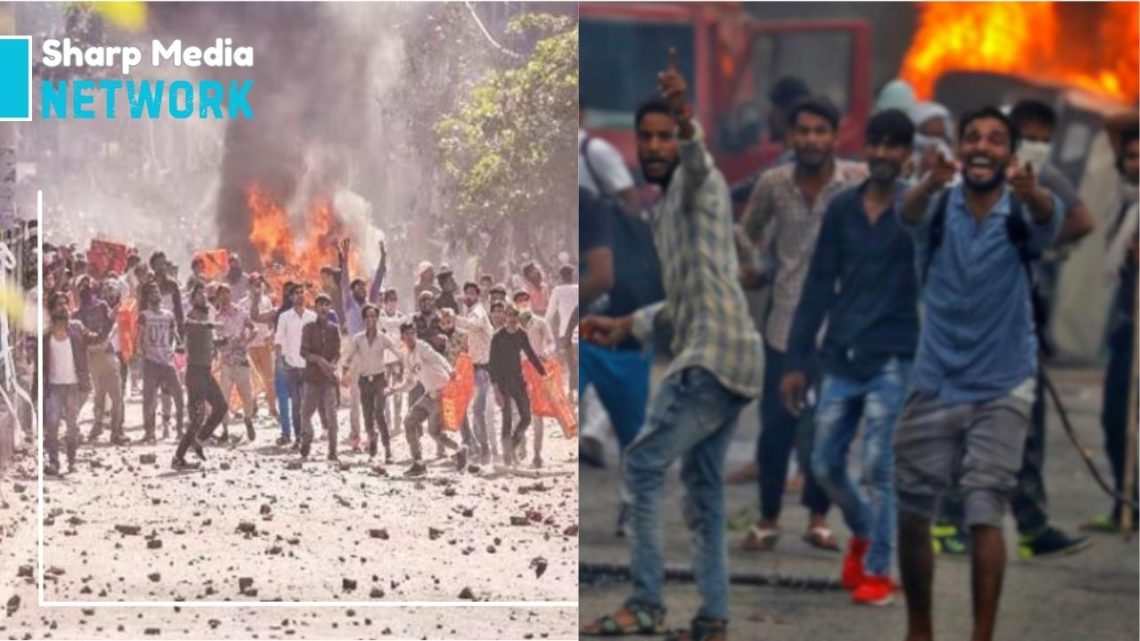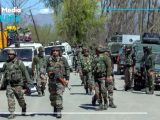
India’s Attempt to Create Ethnic Divides in IIOJK
January 17, 2025In a disturbing attempt to fuel sectarian divisions in IIOJK, India has sparked tensions among the region’s Muslim community, seeking to weaken unity and distract from its larger political agenda.
Recent events in Srinagar have brought to light India’s ongoing efforts to sow sectarian tensions within the Muslim community in Indian Illegally Occupied Jammu and Kashmir (IIOJK). During a religious gathering celebrating the birth of a Companion of Prophet Muhammad (SAW), derogatory remarks about the Prophet’s companions were made by a Shia preacher. These remarks, fueled by supporters of India’s ruling Bharatiya Janata Party (BJP), led to widespread unrest and led to the detention of six individuals by J&K police.
The provocative remarks were quickly condemned by religious leaders and organizations, including the Muttahida Majlis-e-Ulema (MMU) IIOJK, which expressed grave concern over these efforts to disrupt communal harmony. The incident has exacerbated sectarian tensions between Shia and Sunni Muslims in the region, undermining their historically unified stance on key issues. IIOJK’s Muslims have coexisted peacefully across sects for centuries, and the current discord seems to be a deliberate effort to weaken this collective strength.
India’s attempt to create divisions among Muslims in the region is part of a broader strategy to undermine their unity, using the old colonial tactic of “divide and rule.” This is being done at a time when the BJP government is already facing criticism for its anti-Muslim policies, particularly in the context of IIOJK, and globally as a rising force of Islamophobia.
Islamophobia, deeply ingrained in Indian society, has been weaponized by the BJP and its supporters to suppress and marginalize Muslim voices. By fostering divisions between different sects within Islam, India is attempting to dilute the collective strength of Muslims in the region. The derogatory remarks against the Prophet’s companions and the ensuing unrest are symptomatic of a larger, systematic effort to disrupt Kashmir’s social fabric. This move serves to distract the local population from the BJP’s controversial policies that continue to target the Muslim community in IIOJK, particularly following the revocation of Article 370 in August 2019.
In the face of these provocations, religious scholars and leaders in the region have called for unity. Shia cleric Aga Syed Mohammad Hadi condemned the defamatory remarks and stressed that such sectarian unrest is unacceptable. He highlighted that these divisive tactics not only damage the Islamic community’s unity but also further harm the larger Kashmir cause.
The Muttahida Majlis-e-Ulema (MMU), a prominent platform for religious scholars, urged followers to maintain peace and solidarity in the face of such efforts. They emphasized the importance of upholding the Islamic values of brotherhood, compassion, and unity. This message resonates with a long-standing tradition in Kashmir, where Muslims from all sects have historically prioritized unity over division.
It is becoming increasingly clear that these efforts to stir sectarian unrest are not spontaneous but are part of a larger strategy by Indian authorities. By distracting the masses with internal divisions, the BJP hopes to divert attention from its anti-Kashmiri Muslim policies, which have intensified since the revocation of IIOJK’s special status. The long-standing issues of IIOJK’s political autonomy, the ongoing human rights violations, and the lack of self-determination are conveniently overshadowed when the focus shifts to internal divisions within the Muslim community.
This “divide and rule” strategy aims to weaken the solidarity that has sustained the Kashmiri people’s resistance and their demand for freedom and justice. By turning the Muslim community against itself, India seeks to create a rift that would make it easier to control the region, furthering its agenda of Hindutva and suppression of minority rights.
In response to these challenges, Kashmir’s leaders have reaffirmed their commitment to promoting unity, understanding, and peaceful coexistence. Despite these provocations, there is a strong resolve among the people of IIOJK to resist efforts that seek to divide them. They are determined to remain united in the face of adversity, holding fast to their common values and their collective struggle for justice.
The people of Indian Illegally Occupied Jammu and Kashmir must remain vigilant in the face of India’s deceitful tactics. By attempting to sow sectarian discord, India hopes to undermine the strength of the Kashmir movement, weaken the region’s resistance to occupation, and divert global attention from its ongoing abuses. However, the unity of the Kashmiri people, built over centuries of shared struggle, is the bedrock of their fight for self-determination and freedom.
Kashmir’s future lies in solidarity, not division, and the people of IIOJK must stay focused on the larger goal of achieving justice and peace.

